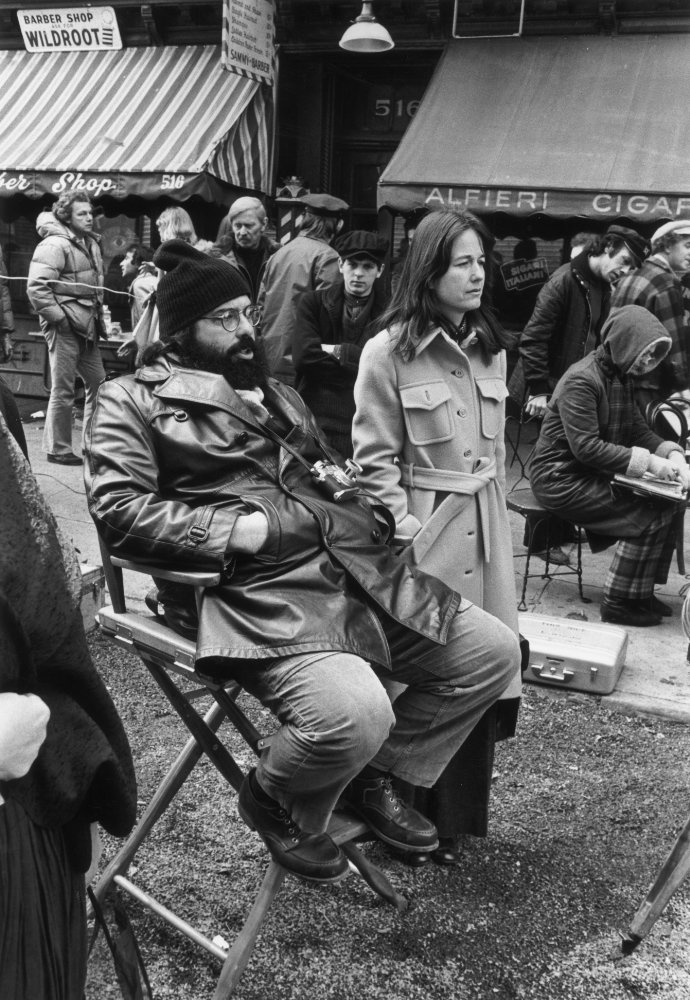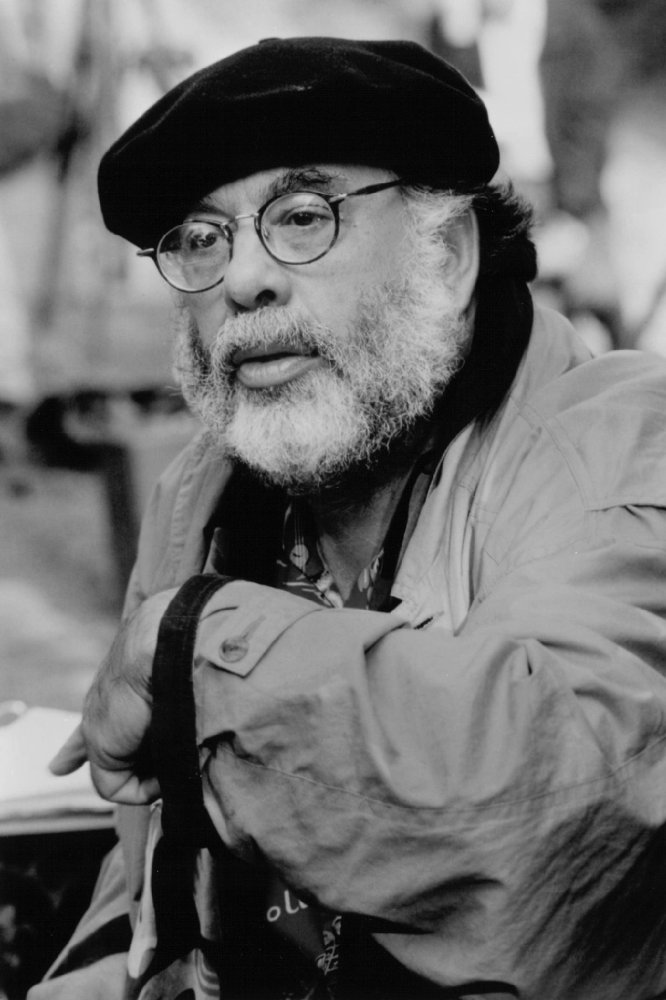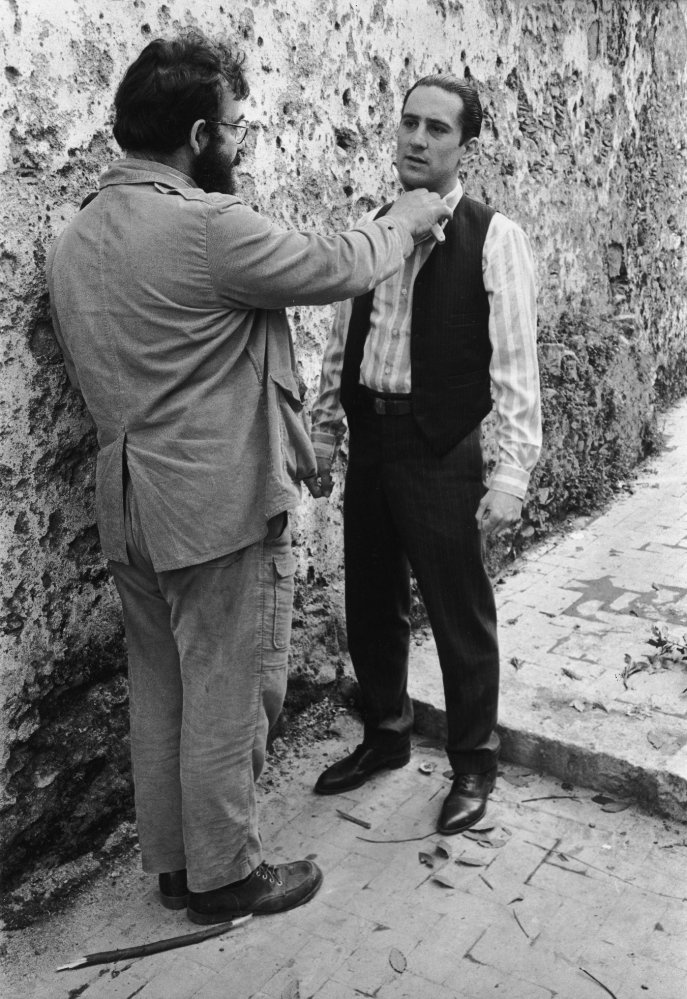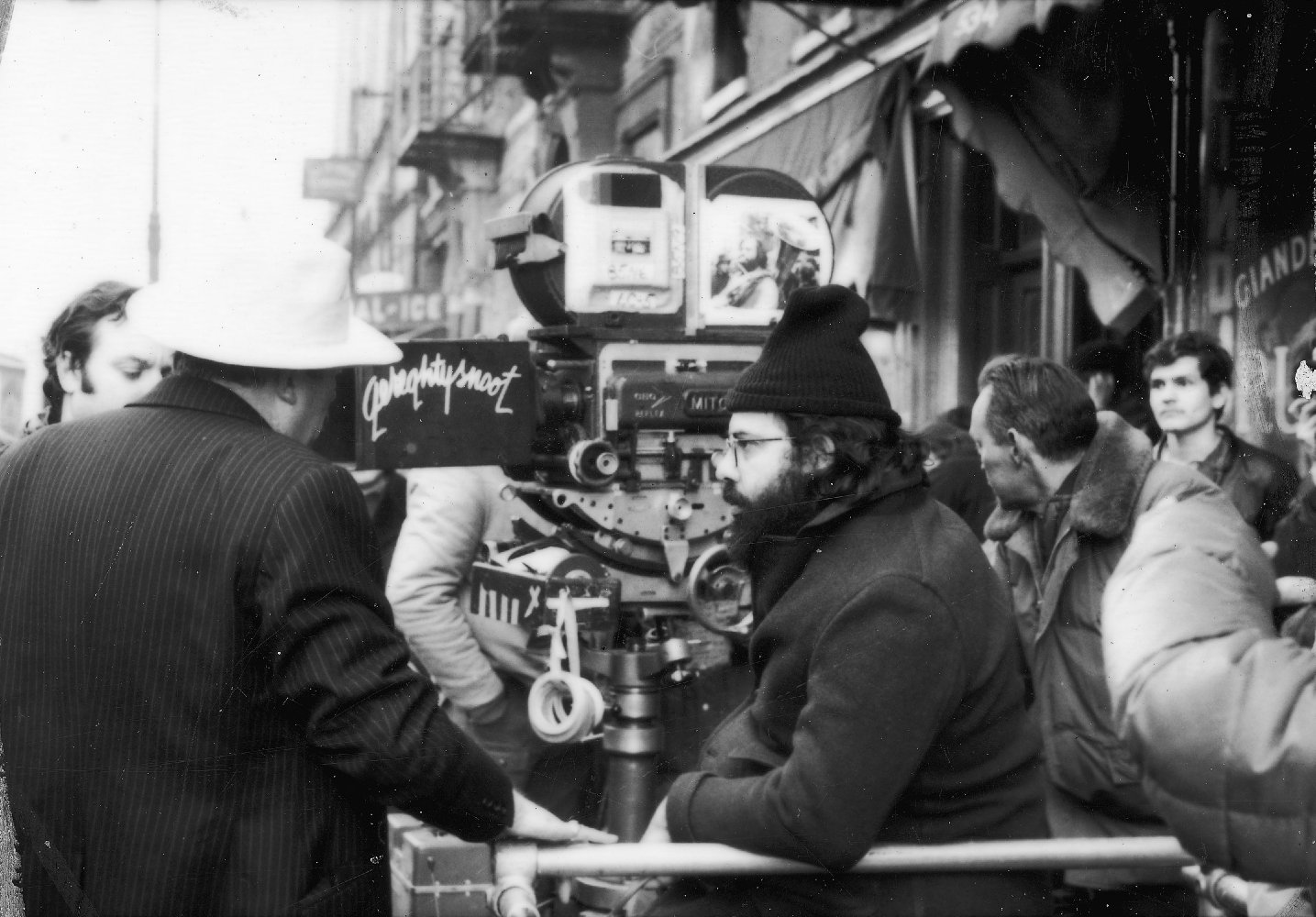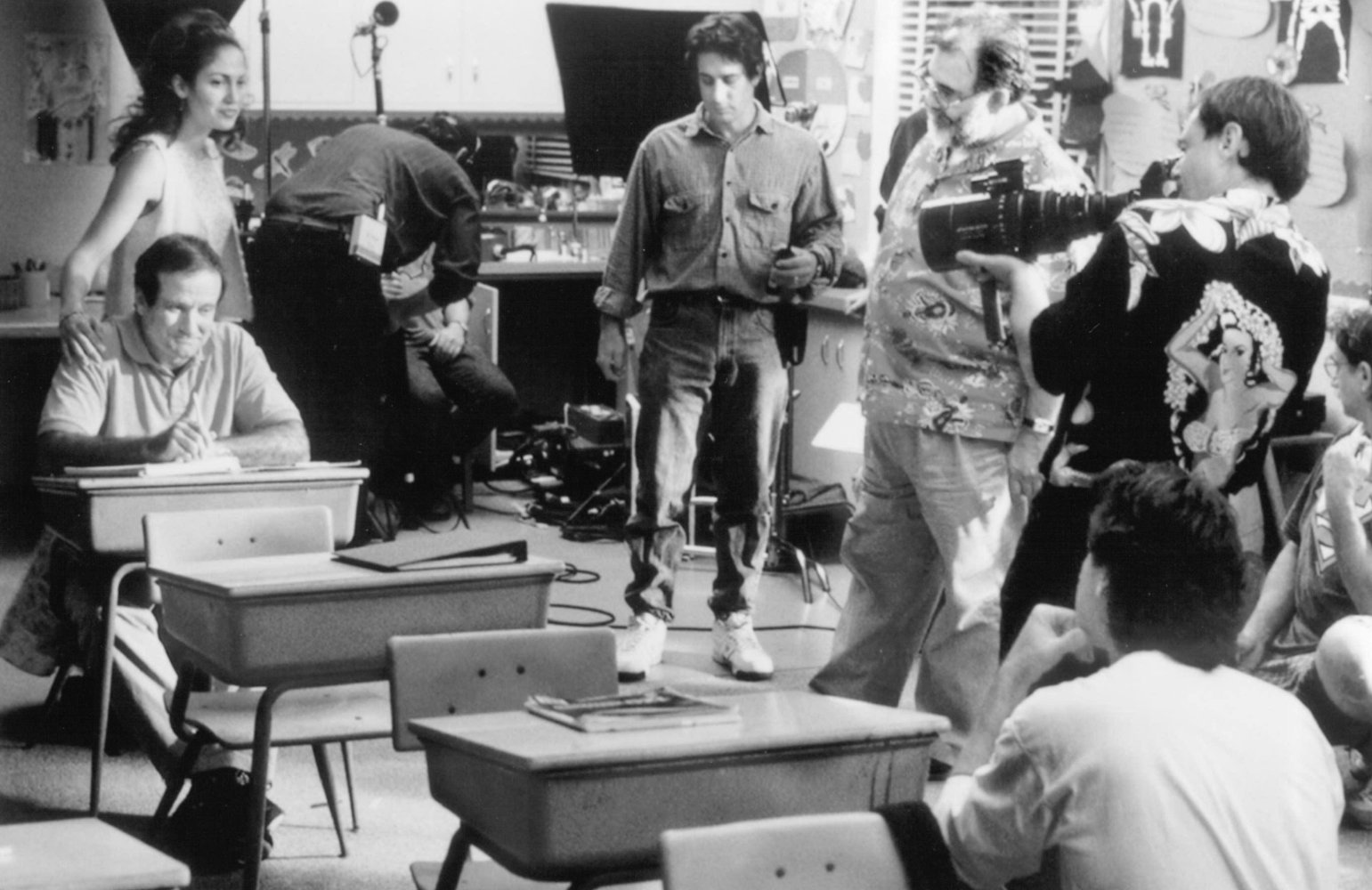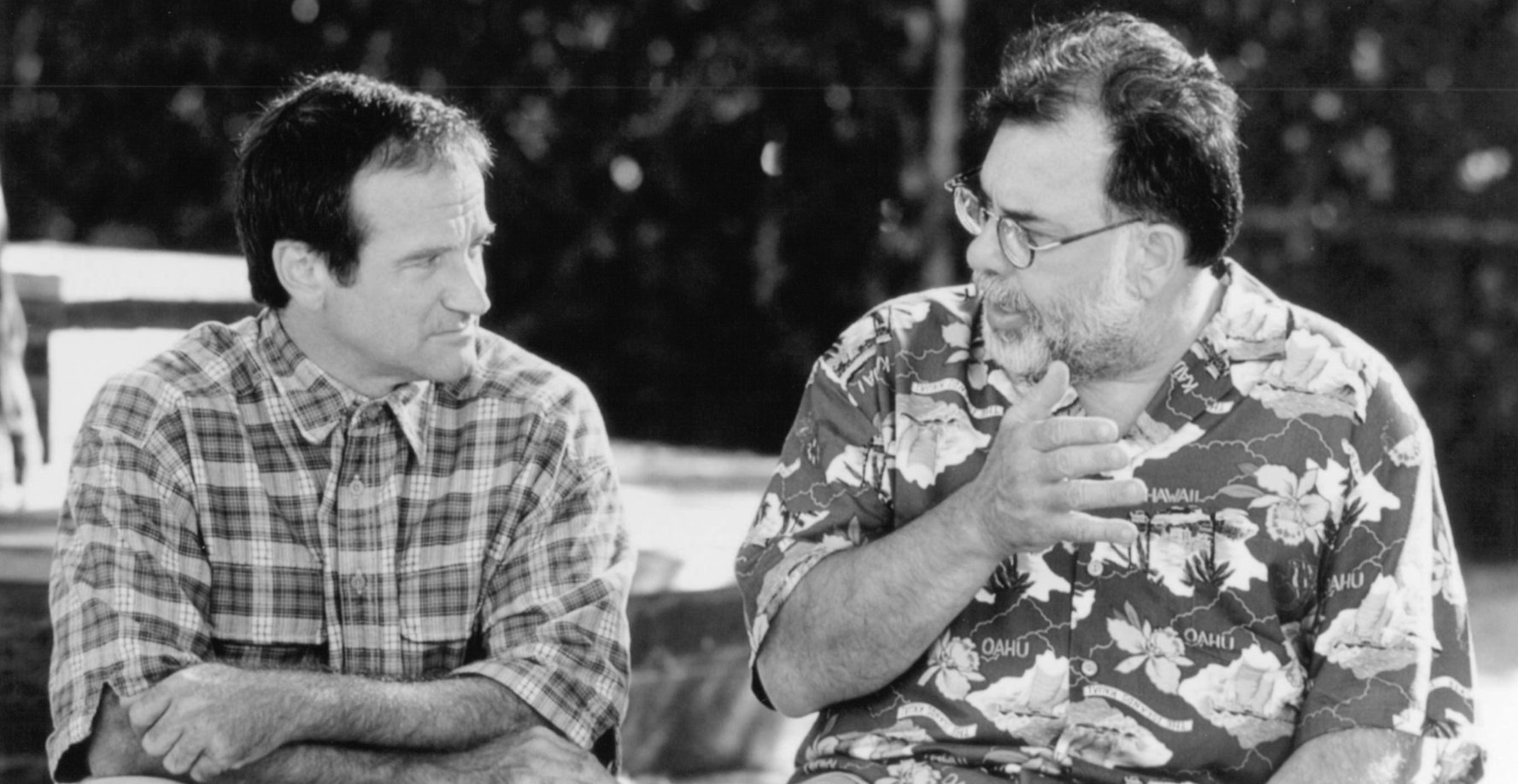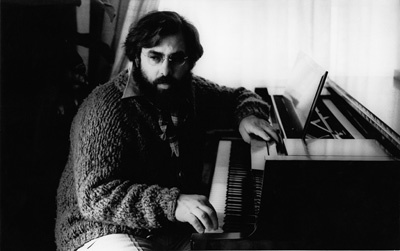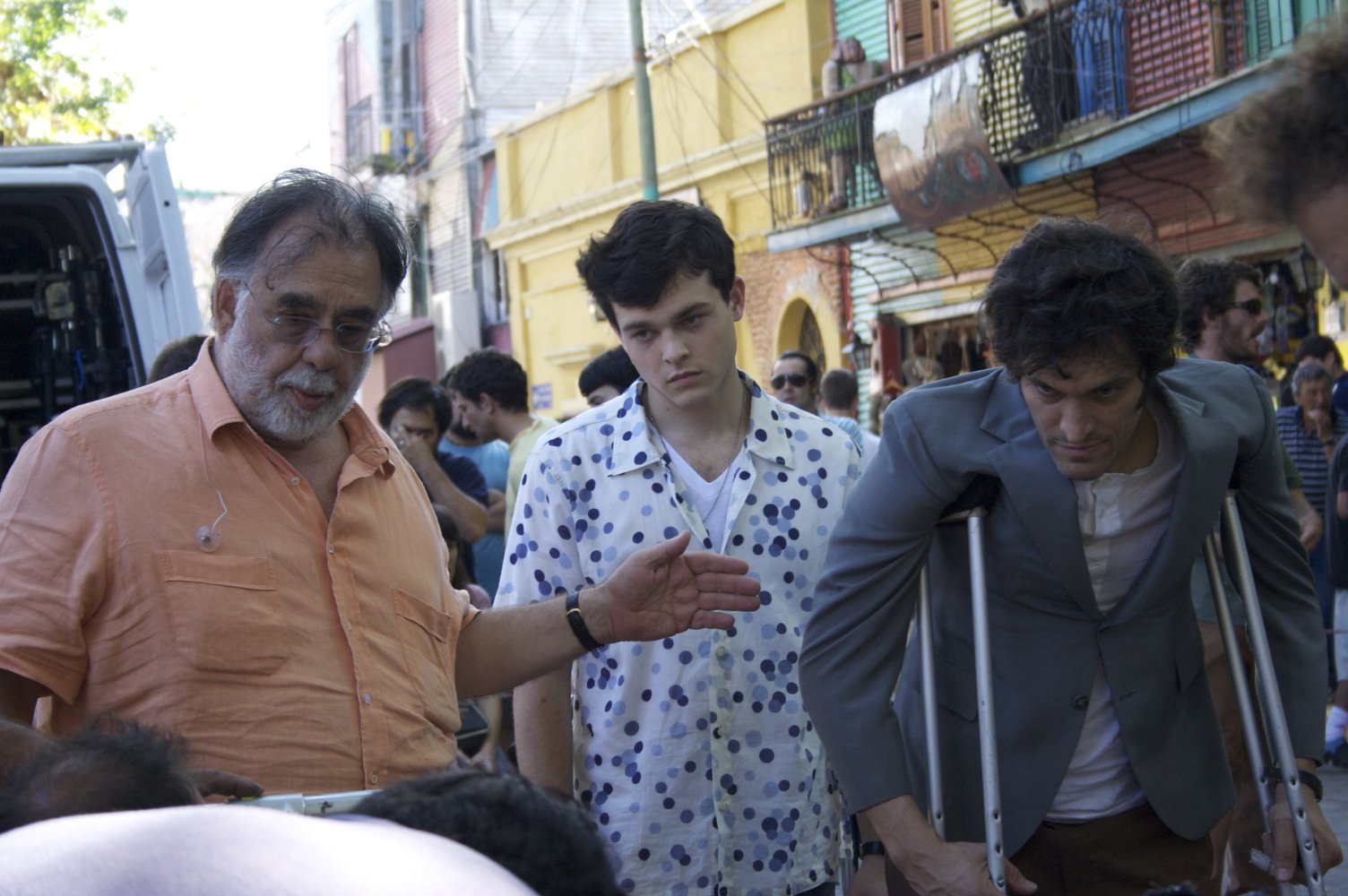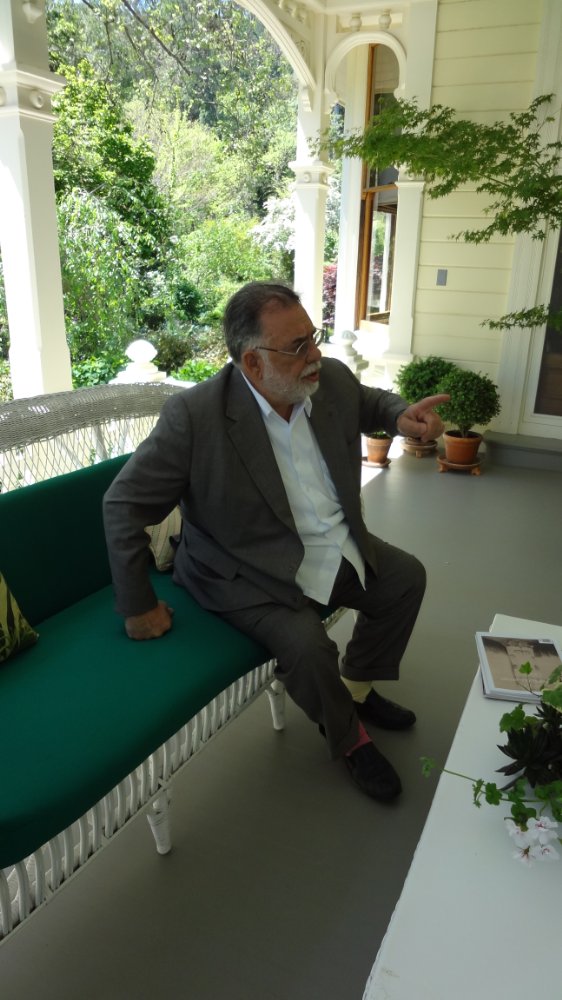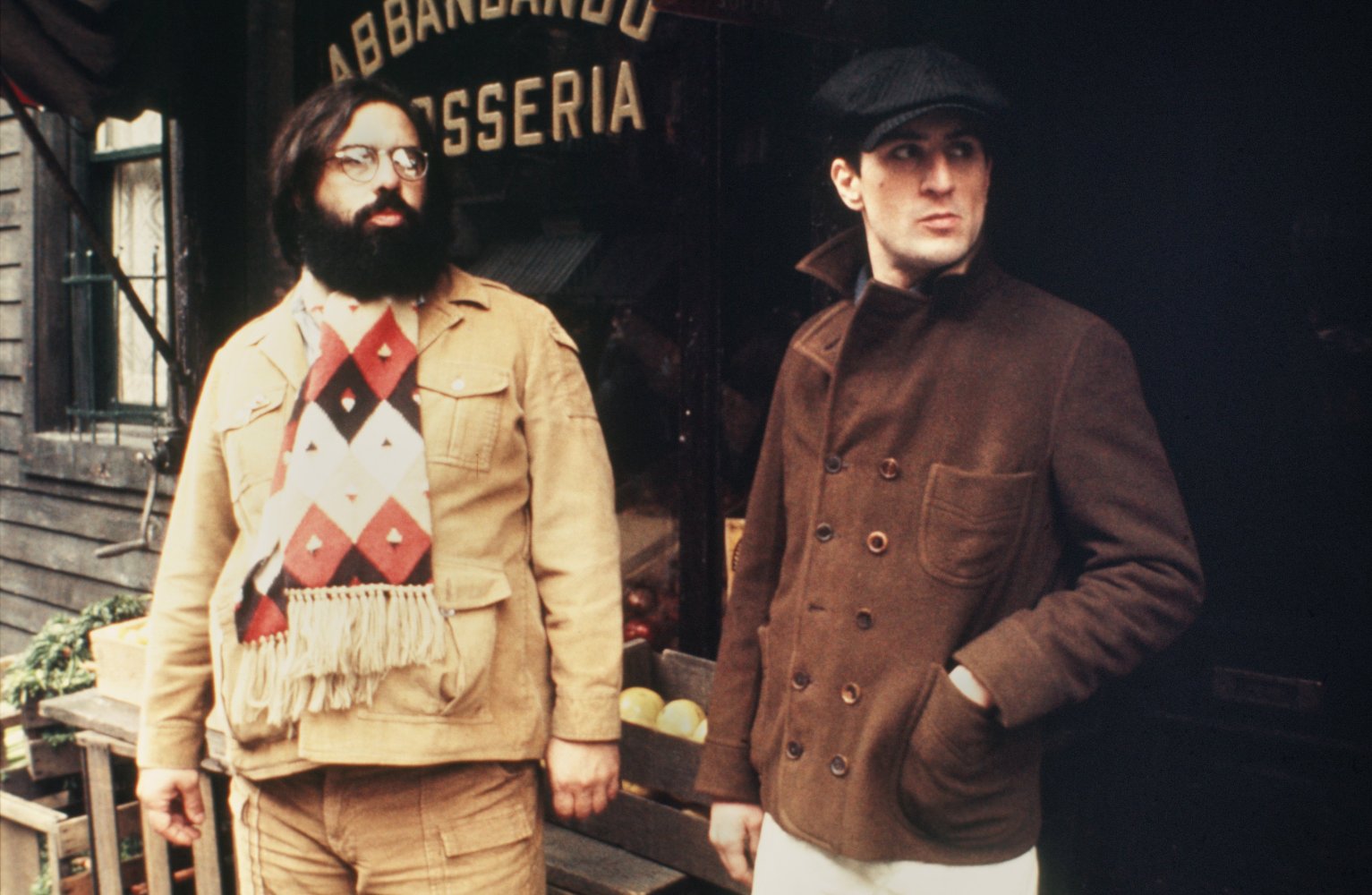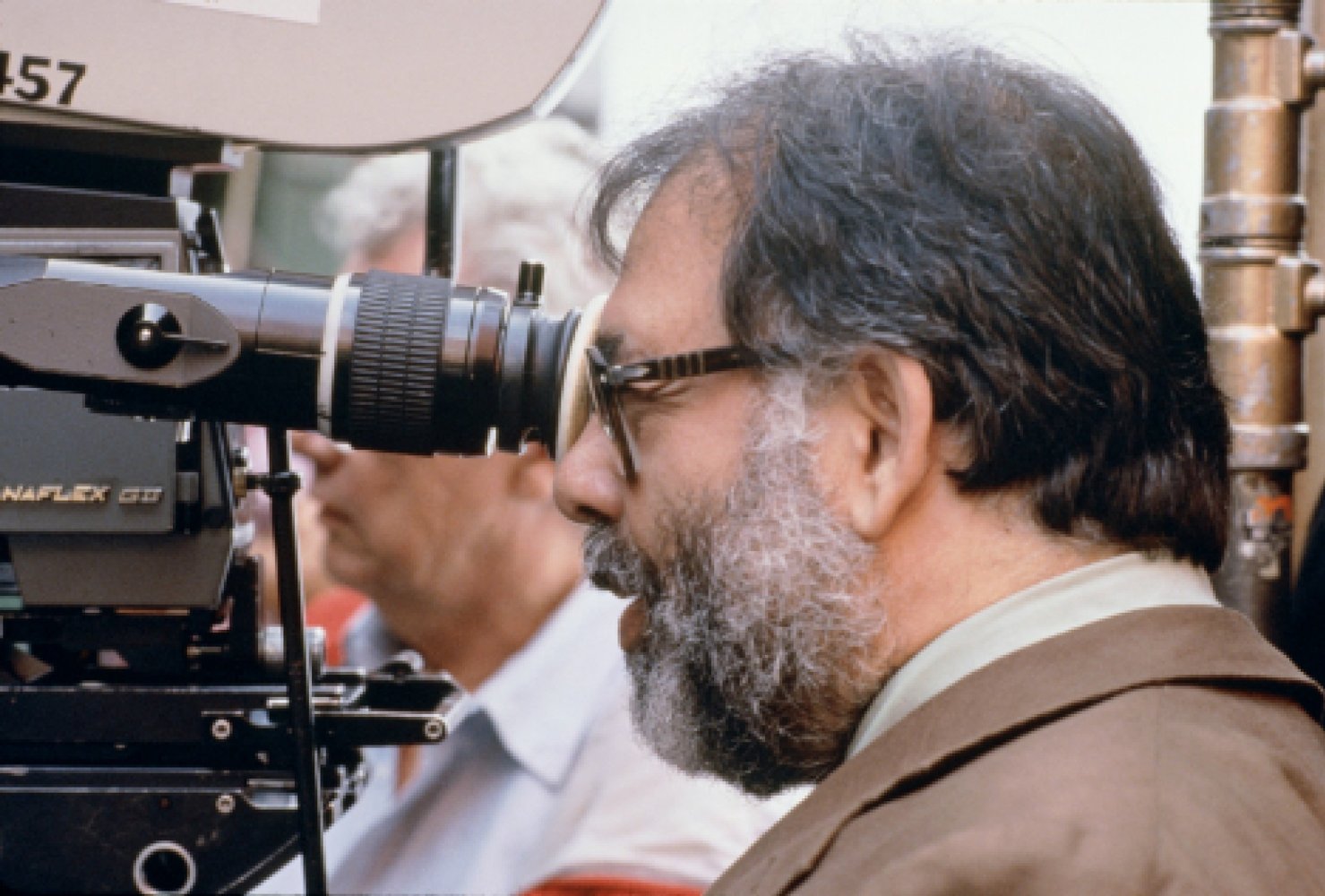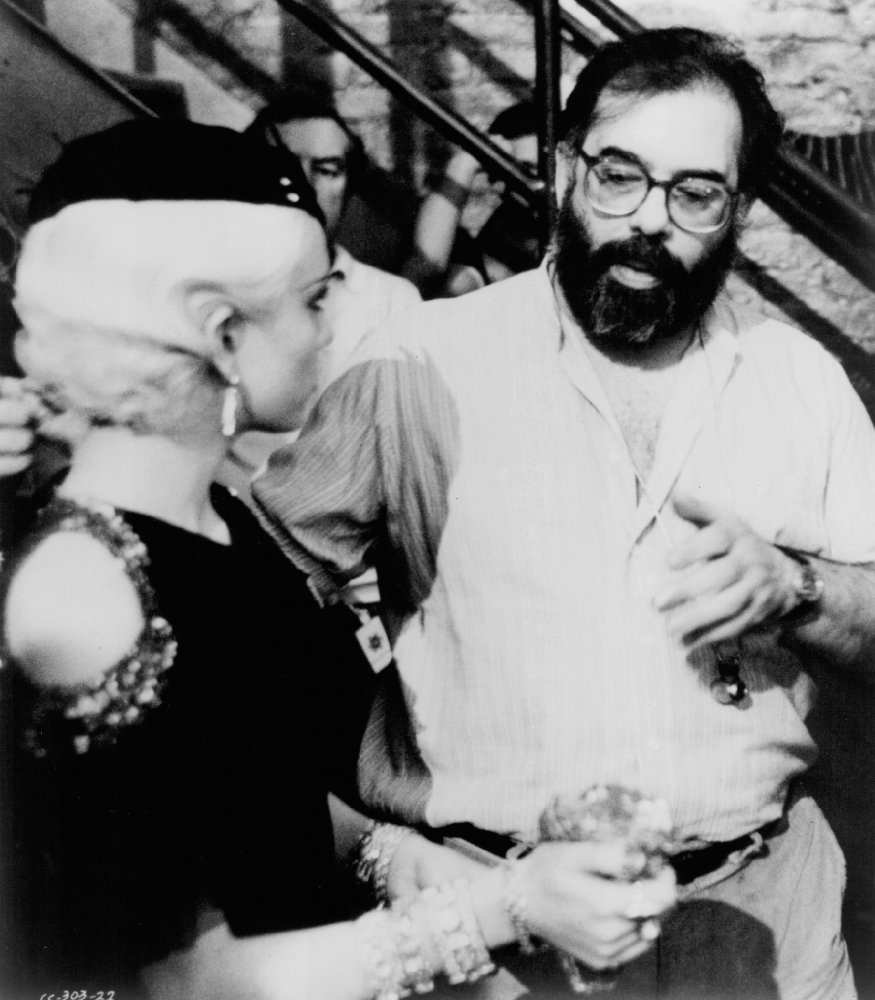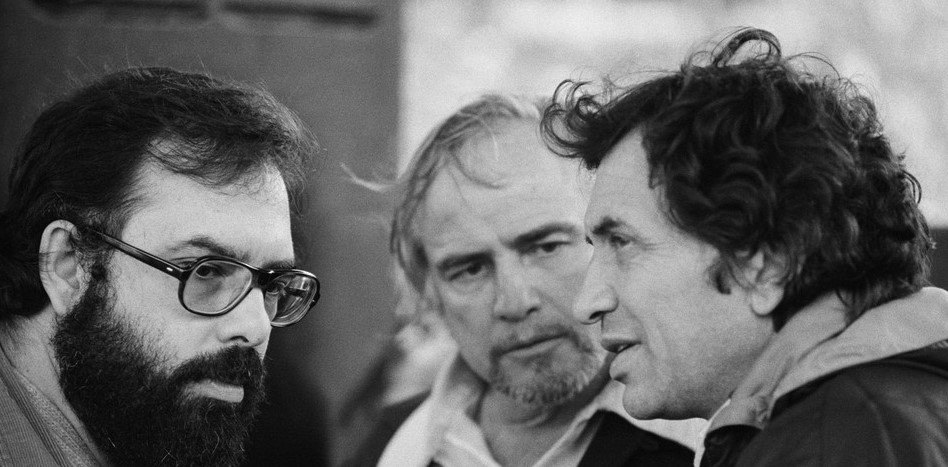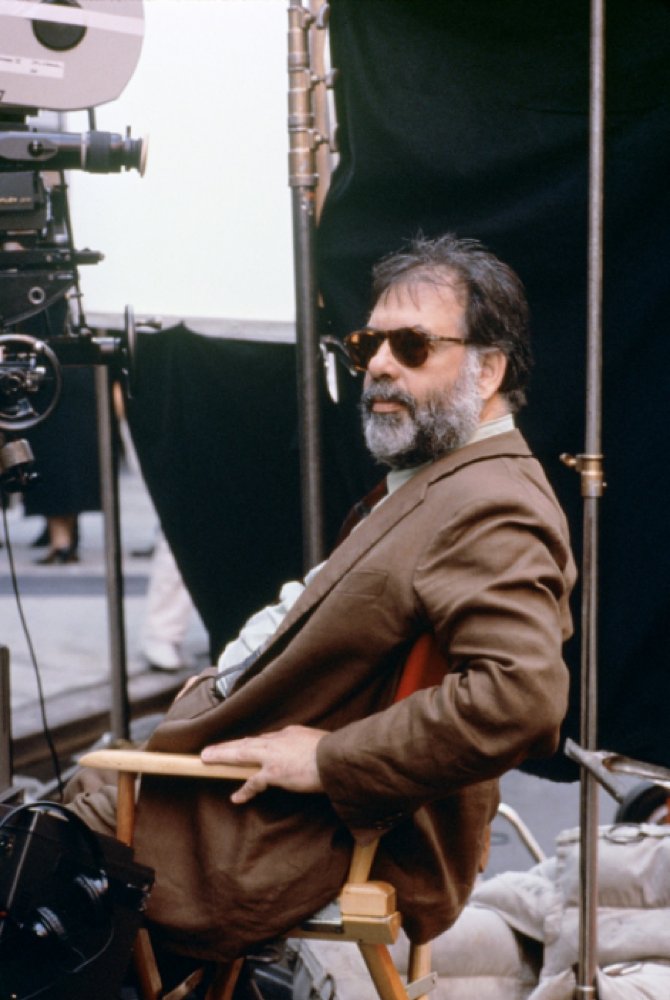
Francis Ford Coppola
Birthday: 7 April 1939, Detroit, Michigan, USA
Height: 179 cm
Francis Ford Coppola was born in 1939 in Detroit, Michigan, but grew up in a New York suburb in a creative, supportive Italian-American family. His father, Carmine Coppola, was a composer and musician ...Show More
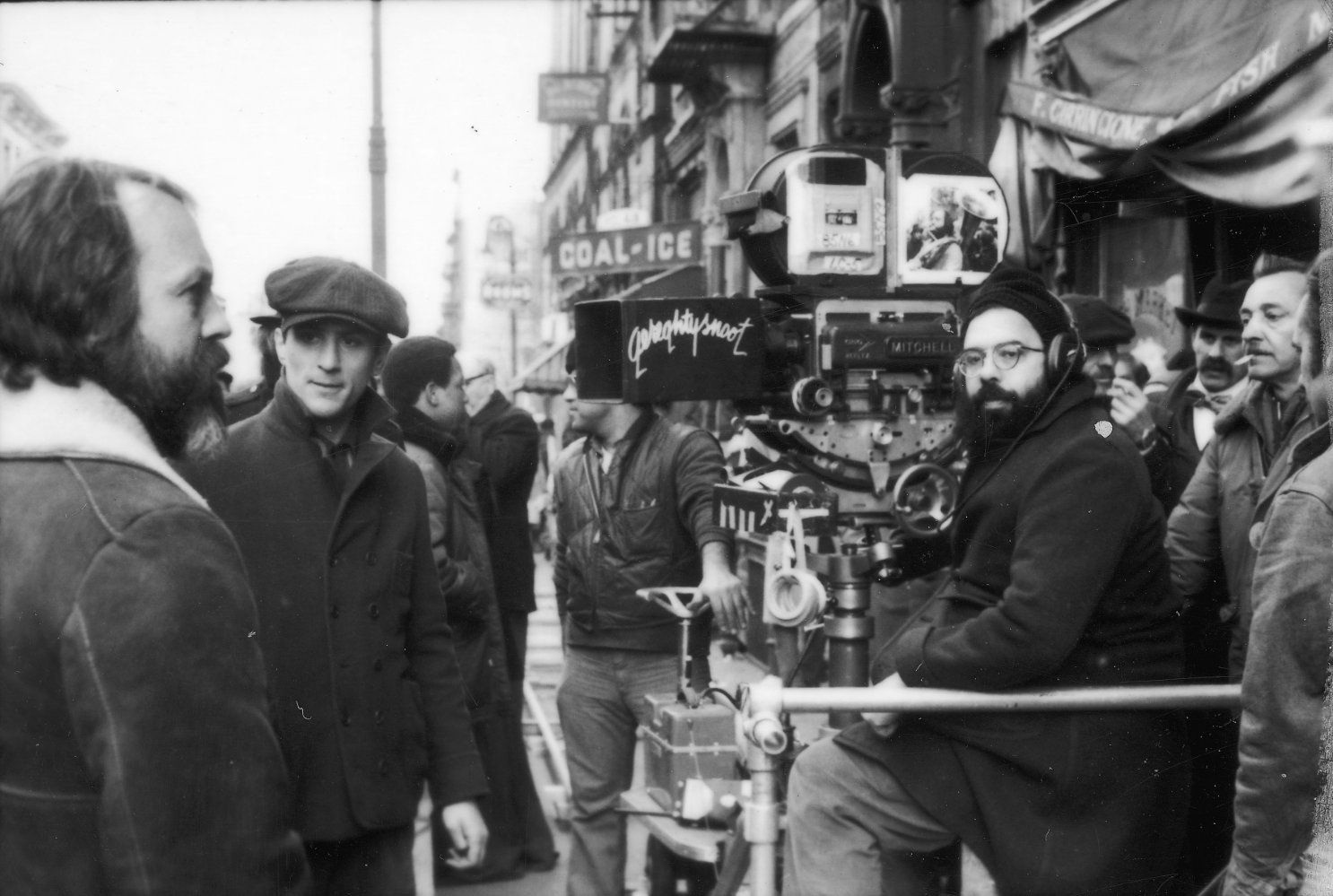
Jack (1996) was a movie that everybody hated and I was constantly damned and ridiculed for. I must s Show more
Jack (1996) was a movie that everybody hated and I was constantly damned and ridiculed for. I must say I find "Jack" sweet and amusing. I don't dislike it as much as everyone, but that's obvious - I directed it. I know I should be ashamed of it but I'm not. I don't know why everybody hated it so much. I think it was because of the type of movie it was. It was considered that I had made Apocalypse Now (1979) and I'm like a Marty Scorsese type of director, and here I am making this dumb Disney film with Robin Williams. But I was always happy to do any type of film. Hide
I wanted to be like those great European filmmakers of the '50s and '60s, and if I was hit by lightn Show more
I wanted to be like those great European filmmakers of the '50s and '60s, and if I was hit by lightning it was The Godfather (1972); that changed my whole life. So I just want to get back to what I was doing when I was first falling in love with films. [2008] Hide
I just feel that at a certain point you have to go back to the beginning again. The best thing for m Show more
I just feel that at a certain point you have to go back to the beginning again. The best thing for me at this point in my life is to become a student again and make movies with the eyes I had when I was enthusiastic about it in the first place. Hide
[on George Lucas] In many ways, because of Star Wars (1977), we were deprived of the films that he w Show more
[on George Lucas] In many ways, because of Star Wars (1977), we were deprived of the films that he was going to make and would have made. All the merchandising and financial success of those films aren't one-tenth to what he is worth as an artist and a filmmaker. Hide
I am fascinated by the whole idea of family.
I am fascinated by the whole idea of family.
I always thought of myself, or charged myself, to be searching and to be somewhat experimental. I di Show more
I always thought of myself, or charged myself, to be searching and to be somewhat experimental. I didn't just make one style of movie and then just stick with that. Every film I made I approached differently according its theme. Whereas The Godfather (1972) films, that I'm probably best known for, had a certain classic, Shakespearean style, Apocalypse Now (1979) was totally different. Almost a different person made it. One from the Heart (1981) was yet another experiment and Rumble Fish (1983) was another. I always was trying to learn about cinema by approaching it experimentally and trying to uncover what it was that really connected with me. And I'm still doing it at age 77. I'm still trying to look at it from the standpoint of: What can I learn? [2016] Hide
The Cotton Club (1984) was sort of made on the battlefield between the various people who put up the Show more
The Cotton Club (1984) was sort of made on the battlefield between the various people who put up the money and the producer [Robert Evans]. At the time, they looked at it and said, "Oh, there's too many black people in it. Can we cut out some of the tap dancing and put the emphasis less on the black people in the story?" I happened to have a Betamax very rough copy of what the movie had been before all that happened. I realized the movie had been 35 minutes longer. Much of the film had been lost, but through hook and crook, I was able to put it back together. [April 2016] Hide
[on filmmaking today] Well, for under $10,000 you can buy everything you need. So now we have to und Show more
[on filmmaking today] Well, for under $10,000 you can buy everything you need. So now we have to undo the brainwashing of the past 50 years about what a movie can be: that it must be commercial, it must go down easy, it must be structured so that it appeals to the widest possible audience. Even people who read sophisticated books expect that when they go to see a movie, it won't involve any thinking. They're willing to give more to a work of literature. A movie is supposed to be something light that you go to, and you have a good time, and you don't think too much, and you laugh, or you get scared, or you're in awe of the violence, and you go home, and you forget it. And that has to be broken. [2008] Hide
In a sense, I think a movie is really a little like a question and when you make it, that's when you Show more
In a sense, I think a movie is really a little like a question and when you make it, that's when you get the answer. Hide
Basically, both the Mafia and America feel they are benevolent organizations. And both the Mafia and Show more
Basically, both the Mafia and America feel they are benevolent organizations. And both the Mafia and America have their hands stained with blood from what it is necessary to do to protect their power and interests. Hide
[on Marlon Brando] Brando wants to do what you want, but he wants people to be honest and not try to Show more
[on Marlon Brando] Brando wants to do what you want, but he wants people to be honest and not try to manipulate him. Hide
[if he'd be annoyed if the studio decided to make more sequels to The Godfather (1972)] Well, yeah, Show more
[if he'd be annoyed if the studio decided to make more sequels to The Godfather (1972)] Well, yeah, because I feel that all films shouldn't be sequels. Sequels are not done for the audience or cinema or the filmmakers. It's for the distributor. The film becomes a brand. Hide
I had a little fantasy that goes like this: I'm getting to be an influential person in San Francisco Show more
I had a little fantasy that goes like this: I'm getting to be an influential person in San Francisco; what if I and five other powerful guys with cigars got together in a smoke-filled room to decide who would be the next mayor of San Francisco? We'd do it because we're good guys and we really want the city to be wonderful for everybody. Then I thought, what's the difference between five good guys holding that kind of power and five bad guys? Just good intentions, and intentions can be corrupted. Hide
I think the secret of life is to not be afraid of risk. People go through life risking their money, Show more
I think the secret of life is to not be afraid of risk. People go through life risking their money, risking losing this, risking losing that. But the truth of the matter is, there is only one risk. Because for sure you're gonna die, you are there and you're thinking about your life and you say, 'Oh, I wish I'd done this, I wish I'd done that.' That's the risk. So basically, I try to say yes more than no. [2009] Hide
I have always been a little disappointed about One from the Heart (1981) because I really wanted to Show more
I have always been a little disappointed about One from the Heart (1981) because I really wanted to make it more like live cinema. I really wanted to shoot it with 12 cameras and edit it all in the camera. At the last minute I chickened out because the photographer chickened out. So for me with "One From The Heart", I always feel that I should have gone that last yard. It was only the cinematographer coming to me saying, "Oh please, I don't want to shoot it with 12 cameras because I can't light it." I think, no question, it was beautiful photographically - he was right. But to me the experiment was a little incomplete. It had wonderful music, wonderful songs. It would be nice if people liked "One From The Heart" because it was my big failure. Hide
[on Apocalypse Now (1979)] My movie is not about Vietnam... my movie is Vietnam. [Cannes 1979]
[on Apocalypse Now (1979)] My movie is not about Vietnam... my movie is Vietnam. [Cannes 1979]
I think a sequel is a waste of money and time. I think movies should illuminate new stories.
I think a sequel is a waste of money and time. I think movies should illuminate new stories.
I think cinema, movies and magic have always been closely associated. The very earliest people who m Show more
I think cinema, movies and magic have always been closely associated. The very earliest people who made films were magicians. Hide
All of a sudden, there are great Japanese films, or great Italian films, or great Australian films. Show more
All of a sudden, there are great Japanese films, or great Italian films, or great Australian films. It's usually because there are a number of people that cross- pollinated each other. Hide
I don't think The Godfather (1972) ever should have had more than one movie, actually. It was not a Show more
I don't think The Godfather (1972) ever should have had more than one movie, actually. It was not a serial, it was a drama. The first movie wrapped up everything. To make more than one "Godfather" was just greed. Basically, making a movie costs so much money that they want it to be like Coca-Cola: you just make the same thing over and over again to make money, which is what they're doing now. But "Godfather" was not really a serial, you know? Hide
[on shooting and finishing Youth Without Youth (2007) in Romania] It's a country with a fantastic in Show more
[on shooting and finishing Youth Without Youth (2007) in Romania] It's a country with a fantastic intellectual tradition - theatre, poetry, cinema - and right now it's going through a renaissance in cinema. Their films are winning awards all over the world and everyone under 35 speaks English. They're very well educated and it's a very cinema-friendly country, but they're lacking in the visual effects department and other areas. We did the post in Bucharest and Walter Murch came over to edit and help oversee all the post. (...) The great thing about post now is that digital cinema has become a reality, so a filmmaker has more ability to compose picture and sound than ever before, and all because of these new tools, such as the latest editing systems like Final Cut Pro, Pro Tools and so on, which are also becoming less and less expensive. [Feb.2008] Hide
[on Youth Without Youth (2007)] We've got a job and so and so and so, but sometimes we say, what is Show more
[on Youth Without Youth (2007)] We've got a job and so and so and so, but sometimes we say, what is life? Where did I come from? What is going to happen when I die? What's really important? All those kind of ruminations should also be in a movie, I thought. (...) I thought of it as a love story wrapped in a mystery like in Vertigo (1958). Except in "Vertigo" the mystery is some guy is trying to kill his wife. In my movie the mystery is the real mystery that we are really all in. [2007] Hide
Wall Street got interested in film and communications, and these are the people who brought you the Show more
Wall Street got interested in film and communications, and these are the people who brought you the Big Mac. In the past twelve years, I can't think of one classic they've made. [1996] Hide
There's no doubt that, by the end of The Godfather: Part II (1974), Michael Corleone, having beaten Show more
There's no doubt that, by the end of The Godfather: Part II (1974), Michael Corleone, having beaten everyone, is sitting there alone, a living corpse. There's no way that man will ever change. I admit I considered some upbeat touch at the end, but honesty - and Pacino - wouldn't let me do it. Hide
I didn't particularly want to make The Godfather: Part II (1974) ! I always felt that The Godfather Show more
I didn't particularly want to make The Godfather: Part II (1974) ! I always felt that The Godfather (1972) was a perfectly good drama and ended all the aspects of the story: It resolved the character and was really meant to be one movie. It only got to be a second and a third out of the greed of companies wanting to make more of them. On "The Godfather: Part II", I had just as much control over the production as I had with Youth Without Youth (2007) because it was my own. Because "The Godfather" was so successful, I could do anything I wanted. But even though maybe "The Godfather: Part II" was a good film or a better film, I still feel that "The Godfather" was complete. I only did "The Godfather Part II" because I thought it would be interesting to make a film about a man and his father at the same age and tell the two stories in parallel, which is what I did. And that was an achievement. Hide
I try always to do something that's a little beyond my reach, so that I'll try my best. Sometimes I Show more
I try always to do something that's a little beyond my reach, so that I'll try my best. Sometimes I fail. Sometimes I almost succeed, but I think this is what life's all about. Hide
[on his 'Live Cinema' project] I'm thrilled that I'm in a position to search for what the possibilit Show more
[on his 'Live Cinema' project] I'm thrilled that I'm in a position to search for what the possibilities [of cinema] are. I do feel it's a pity that the concept of performance has been lost. That basically since the invention of the phonograph and the cinema that all our art forms are canned. By 'Live Cinema', I don't mean like in the form of a television version of a play. I mean cinema, still, with the rules and language of cinema but performed live. That could be very thrilling. (...) Risk is part of the artistic process. That's why I like performance, because performance is walking a high wire. [2016] Hide
I think the language of cinema and the reason that in just 100 years we've become so comfortable wit Show more
I think the language of cinema and the reason that in just 100 years we've become so comfortable with making cinema is from thousands of years of man dreaming. I think it is based on the dream, and the whole language of cinema comes from dreams. [2008] Hide
I don't think there's any artist of any value who doesn't doubt what they're doing.
I don't think there's any artist of any value who doesn't doubt what they're doing.
[on Robert De Niro] I like Bob, I just don't know if he likes himself.
[on Robert De Niro] I like Bob, I just don't know if he likes himself.
Lots of people have criticized my movies, but nobody has ever identified the real problem: I'm a slo Show more
Lots of people have criticized my movies, but nobody has ever identified the real problem: I'm a sloppy filmmaker. Hide
They say that A Streetcar Named Desire (1951) really is Tennessee Williams' expression of himself as Show more
They say that A Streetcar Named Desire (1951) really is Tennessee Williams' expression of himself as Blanche, as someone talented and fragile, fragile in a world of harsh reality. Hide
Steven Spielberg is unique. I feel that the kinds of movies he loves are the same kinds of movies th Show more
Steven Spielberg is unique. I feel that the kinds of movies he loves are the same kinds of movies that the big mass audience loves. He's very fortunate because he can do the things he naturally likes the best, and he's been very successful. Martin Scorsese, I think, is different. If Exxon went to Martin and said, "Martin, we feel you're one of the best artists in the world today and we're going to finance any movie you want to make because we believe that at the end of your life those will be very valuable movies," he would be making very different movies from what he's making now. I think he probably has scripts that he's trying to get someone to enable him to make and then another one comes on and they say, "Look, we have Jack Nicholson and so on and so on. Would you do it? And of course he says, "Okay. Not that he doesn't like it or they're not good movies, but I think that his heart is maybe in more personal filmmaking. Hide
[on The Godfather (1972)] I had been so conditioned to think the film was bad - too dark, too long, Show more
[on The Godfather (1972)] I had been so conditioned to think the film was bad - too dark, too long, too boring - that I didn't think it would have any success. In fact, the reason I took the job to write The Great Gatsby (1974) was because I had no money and three kids and was sure I'd need the money. I heard about the success of "The Godfather" from my wife, who called me while I was writing "Gatsby". I wasn't even there. Masterpiece, ha ! I was not even confident it would be a mild success. Hide
The easiest way to make sure a movie is successful is to make a traditional movie very well. If you Show more
The easiest way to make sure a movie is successful is to make a traditional movie very well. If you make a slightly unusual movie or [don't] exactly follow the rules as everyone sees them, then you get in trouble or, like with Apocalypse Now (1979), wait 20 years to hear that was really good. Hide
When you lose your kid, it's the first thing you think of when you wake up in the morning for about Show more
When you lose your kid, it's the first thing you think of when you wake up in the morning for about seven or eight years. Then there's the first morning when that's not the first thing you think of. You get brave. Hide
Who said that all the ideas of how you tell a story or express the cinematic language were all in th Show more
Who said that all the ideas of how you tell a story or express the cinematic language were all in the silent era? Why aren't there new ideas that are changing the language of film now? It's partially because film is much more controlled. In those days guys went out and made movies and no one knew what a movie was so if they wanted to invent the close shot the producer wasn't going to argue with him. Today, what is he doing? We want to make money on the film. We can't just make experimental films. [2007] Hide
People feel the worst film I made was Jack (1996). But to this day, when I get checks from old movie Show more
People feel the worst film I made was Jack (1996). But to this day, when I get checks from old movies I've made, "Jack" is one of the biggest ones. No one knows that. If people hate the movie, they hate the movie. I just wanted to work with Robin Williams. Hide
In the 60s they were four filmmakers who represented cinema and influenced everyone who came after: Show more
In the 60s they were four filmmakers who represented cinema and influenced everyone who came after: Fellini, Kurosawa, Bergman and Kubrick. Hide
[on Marlon Brando] Marlon was never hard to work with. His behaviour was a little eccentric on the s Show more
[on Marlon Brando] Marlon was never hard to work with. His behaviour was a little eccentric on the set. He was like a bad boy and did what he wanted. But as an actor he was never hard to work with. Hide
The trouble with American filmmaking is that producers don't allow the risk of failure. If a good fi Show more
The trouble with American filmmaking is that producers don't allow the risk of failure. If a good film can't risk being a failure, it won't be really good. Hide
You can't have great art without risk. It's simply impossible. If you want to eliminate risk, then y Show more
You can't have great art without risk. It's simply impossible. If you want to eliminate risk, then you'll end up making the same movie over and over again, which is what they're doing now. [2008] Hide
I'm in a unique situation. I'm like now an elderly retired guy who made a lot of money, and now I ca Show more
I'm in a unique situation. I'm like now an elderly retired guy who made a lot of money, and now I can just, instead of playing golf, I can make art films. Hide
The only TV I would be interested in exploring would be live television. There's no substitute for a Show more
The only TV I would be interested in exploring would be live television. There's no substitute for a team of artists performing at their peak live when failure is possible. It's a high-wire act. That excites me. Hide
[on Unforgiven (1992)] We developed that script, David Webb Peoples and I. We worked on it for month Show more
[on Unforgiven (1992)] We developed that script, David Webb Peoples and I. We worked on it for months. The film was made based on that script we finished. Nobody wanted to make it. I'd even sent it to Clint Eastwood to act in it. I don't know whether he read it. Finally after two or three years of paying the options, I let it go and then Clint picked it up. Hide
Here's a tip to young directors. They never fire you midweek.
Here's a tip to young directors. They never fire you midweek.
There's something in my heart that isn't yet fulfilled. Maybe it's a sickness. But I'm definitely no Show more
There's something in my heart that isn't yet fulfilled. Maybe it's a sickness. But I'm definitely not satisfied. It's not do to with money - I'm richer than I ever thought I would be. It's not fame - I'm more famous than I've ever been. It's something else. Something personal. I would like to leave ten films that I have written, original work. That would satisfy this itch. [2007] Hide
[on the style of Youth Without Youth (2007)] So I tried to tell the story in a more classical [way], Show more
[on the style of Youth Without Youth (2007)] So I tried to tell the story in a more classical [way], more like The Godfather (1972), but more extreme. Most like Yasujirô Ozu where the camera never moves. When a camera doesn't move then movement is more accentuated because every time and actor walks in, the next movie you see look at the corner of the frame and you'll see it's always doing this. It never stops. In this movie the camera is that and that's it. Everything is accomplished in a classical shot to another shot, which then gives you more, which is one way to make a movie, but I felt that was appropriate for this because by giving it a very classical style then you could relax about that, and not feel, where am I, I can't see anything because it's cutting so fast. And then you might feel more comfortable to follow the story, but then ruminate. That's interesting. It's a dream and in the dream he's reading books. So I made the style very deliberately classical and also got to do what I've always wanted to do, is to make a movie without any movement just to see what happens. [2007] Hide
[on Akira Kurosawa] Most directors have one masterpiece by which they are known, or possibly two. Ku Show more
[on Akira Kurosawa] Most directors have one masterpiece by which they are known, or possibly two. Kurosawa has at least eight or nine. Hide
The wine business is like having a $100 million hit every year. The wine business is really a busine Show more
The wine business is like having a $100 million hit every year. The wine business is really a business. The film business isn't a business; it's a very screwy arrangement where you do all this work and the money all gets emptied into this hopper called distribution, and then it slowly trickles down, and when it gets to the people who actually make the film, there's little left - which is what all the strikes are about. You can't become really wealthy on the scale of what that means today in the film business, but in the wine business you can, because it took off. That wasn't my doing. It was an accident and I was luckily in it early on, so I benefited. [2008] Hide
I think if there was a role that Robert De Niro was hungry for, he would come after it. I don't thin Show more
I think if there was a role that Robert De Niro was hungry for, he would come after it. I don't think Jack Nicholson would. Jack has money and influence and girls, and I think he's a little bit like Marlon Brando, except Brando went through some tough times. I guess they don't want to do it anymore Hide
I think The Godfather: Part III (1990) had a lot of good things about it. It had good potential. I t Show more
I think The Godfather: Part III (1990) had a lot of good things about it. It had good potential. I think it was made a little too rushed because it was made in one year and they wanted it out that Christmas. It was a big, complex, difficult story. I think if I had spent more time writing it I would have solved or defined some of the issues better, rather than doing it while we were shooting. Also I think the loss of Robert Duvall as a character made a difference. As I look back on it, he was a very important part of that story. Clearly he was the most important character still living from the other movies. So I think ultimately losing the Hagen character was more than I was able to write my way out of so quickly. I could have done it had we not started shooting right away. Hide
Tamara Jenkins made the Slums of Beverly Hills (1998) how many years ago? She's a wonderful talent a Show more
Tamara Jenkins made the Slums of Beverly Hills (1998) how many years ago? She's a wonderful talent and she has no money at all, that girl. She just lives like a poor person because she doesn't want to take the money and make movies she doesn't love. I think you have to love what you make, in anything, not just movies. If you are making products, make products you love and then they'll be good products and you'll be successful. [2007] Hide
If the movie works, nobody notices the mistakes... If the movie doesn't work, the only thing people Show more
If the movie works, nobody notices the mistakes... If the movie doesn't work, the only thing people notice are mistakes. Hide
[on the vanishing distinction between TV, cinema and new media] Cinema is cinema. It can be a minute Show more
[on the vanishing distinction between TV, cinema and new media] Cinema is cinema. It can be a minute or less, or it can be 90 hours or more like The Sopranos (1999). It can be shown in theaters and at the same time you can see it in your living room. It's true you could see it on your iPhone. I'm not sure you would want to, but you could. [2016] Hide
I think people have realized that The Godfather (1972) was never sequel material. I've always mainta Show more
I think people have realized that The Godfather (1972) was never sequel material. I've always maintained there should have been one "Godfather," though I'm proud of the second one, and I thought the third should have been considered a coda and not called The Godfather: Part III (1990). Hide
[on Youth Without Youth (2007)] I was given some quotes from Mircea Eliade, who I didn't know very w Show more
[on Youth Without Youth (2007)] I was given some quotes from Mircea Eliade, who I didn't know very well. And it turned out he was this professor of religious philosophy who used to entertain himself by writing these Borges-like short stories that were kind of like "Twilight Zones." And I read this one story, and every two or three pages something that I didn't expect happened. And it had a love story, and it had all sorts of things that I found intriguing, and all sorts of things that I wanted to learn about, like the origins of language and the nature of human consciousness and the concept of time. And I was getting richer as this was going on - my companies were successful - and I thought, well, why don't I just finance this myself and run off and make it? (...) Many times while making this movie I thought, well, should I just dumb this down and cut this out? And I said, what a pity! Will that make it less commercial? Well, who knows what it'll be? Maybe people will get a kick out of it. And at each point, since I had no studio to boss me around, I thought, I'll do it. And I still tried to make the film be a fun experience. But on the other hand when you think about it at night you might percolate some good ideas. (...) To this day I don't understand L'année dernière à Marienbad (1961) but I think it's beautiful, and I'm intrigued by it. There's plenty of books that I've read that I'm not sure that I got at all, but I feel enriched by having read them. So, like you said, who's to say it's best to cut out the idea and instead of the middle ground have no idea? [2008] Hide
[on Ingmar Bergman] My all-time favorite because he embodies passion, emotion and has warmth.
[on Ingmar Bergman] My all-time favorite because he embodies passion, emotion and has warmth.
To me the great hope is that now that these little 8mm video recorder and stuff now, some - just peo Show more
To me the great hope is that now that these little 8mm video recorder and stuff now, some - just people who normally wouldn't make movies are going to be making them. And, you know, suddenly one day some little fat girl in Ohio is going to be the new Mozart, and you know, and make a beautiful film with her father's little camera-corder and for once this whole professionalism about movies will be destroyed forever and it will become an art form. That's my opinion. ["Heart of Darkness: A Filmmaker's Apocalypse", 1991] Hide
I think Tetro (2009) is the most beautiful film I've ever done in terms of how it was made. I don't Show more
I think Tetro (2009) is the most beautiful film I've ever done in terms of how it was made. I don't know what people will make of the picture, but just the filmmaking part of it, I've learnt to put it together beautifully. Hide
What the studios want now is "risk-free" films but with any sort of art you have to take risks. Not Show more
What the studios want now is "risk-free" films but with any sort of art you have to take risks. Not taking risks in art is like not having sex and then expecting there to be children. Hide
Anything you build on a large scale or with intense passion invites chaos.
Anything you build on a large scale or with intense passion invites chaos.
[on the vanishing distinction between TV and cinema] It has all become one. (...) There is no more f Show more
[on the vanishing distinction between TV and cinema] It has all become one. (...) There is no more film, there is no more television - there is cinema. And it can be everywhere and anywhere and it can do anything. [Screendaily 2015] Hide
The Godfather (1972) films are personal. And they are, even though our family were never gangsters, Show more
The Godfather (1972) films are personal. And they are, even though our family were never gangsters, and we only heard about somebody who knew a gangster. But still, the real day-to-day reality of the Italian family that was put into the gangster film was based on my family and what I remember as a kid. You can't make films without them being personal to some extent. Hide
I wanted to make films like Youth Without Youth (2007) and the one I'm doing next in my 20s. Instead Show more
I wanted to make films like Youth Without Youth (2007) and the one I'm doing next in my 20s. Instead, I made The Godfather (1972). In a way, "Youth Without Youth" is a natural continuation of what I was doing with The Rain People (1969) and The Conversation (1974). I made "The Godfather" and it just totally changed my life. Suddenly I was an important director. I wasn't this young, experimental filmmaker that I'd hoped to be. Hide
I remember I went to see Punch-Drunk Love (2002) and I said, I never saw a movie like this before. F Show more
I remember I went to see Punch-Drunk Love (2002) and I said, I never saw a movie like this before. For that reason I loved it even though I don't know if it was good or not. All I know is that I never saw a movie like that. And that's why I like, even though other people were disappointed, I like The Life Aquatic with Steve Zissou (2004) because it was weird. It was the first time I saw that movie. I like movies to be the first time. (...) There is this whole group, but it's any kind of political movement. Movies have to be this! Well, movies don't have to be anything except beautiful and in some way illuminate life and get you thinking and stuff. [2007] Hide
Initially, the idea of a sequel seemed horrible to me. It sounded like a tacky spin-off, and I used Show more
Initially, the idea of a sequel seemed horrible to me. It sounded like a tacky spin-off, and I used to joke that the only way I'd do it was if they'd let me film 'Abbott and Costello Meet the Godfather'- that would have been fun. Then I entertained some Russian film executives who were visiting San Francisco and they asked me if I was going to make The Godfather: Part II (1974). That was the first time I heard the phrase used; I guess you could say I stole the title from the Russians. In short, it seemed like such a terrible idea that I was intrigued by the thought of pulling it off. Simple as that. Hide
The language of cinema was invented at the turn of the last century by pioneers who were free to exp Show more
The language of cinema was invented at the turn of the last century by pioneers who were free to experiment but today you can't dare to experiment. People who control the motion pictures want to make (profitable films). Now we're at a turning point: As artists we can change the world but to do that we need to be free to experiment. [Variety 2015] Hide
I was offered Thirteen Days (2000). I said I would do it but I had a very experimental way of doing Show more
I was offered Thirteen Days (2000). I said I would do it but I had a very experimental way of doing it. My idea was: what if in that moment of history I got called up and they said, "Listen, Mr Coppola, the President is about to go through an extremely difficult period, he's got to make some terrifying, heartbreaking decisions and he wants you to document it. But you can't go close to him because he's going to be in many difficult meetings through the night. So what you can do is have a 16mm team using very long lenses. We don't want them to know you're shooting." And then make it that way. That's what I wanted to do, but they didn't have the courage to do it. So I said, "Make it like a regular movie." They did a pretty good job. Hide
Akira Kurosawa is one of the greatest directors ever to work in the cinema. His films meant an enorm Show more
Akira Kurosawa is one of the greatest directors ever to work in the cinema. His films meant an enormous amount to me when I was starting my own career. Hide
Hollywood doesn't really exist. What we're talking about now is the "big industry" film - films that Show more
Hollywood doesn't really exist. What we're talking about now is the "big industry" film - films that are packaged as a certain idea of action, and in many cases violence or thrills or mystery. These films aren't expressions of the writer, but a compendium of ideas that could work as a blockbuster hit. That's not Hollywood - it's just wherever people want to make a lot of money. The less expensive a film is, the more ambitious the ideas and themes can be. And the converse is true - the more a film costs, the more salary everyone makes, the more limited the subject-matter has to be. Hide
You can neither make beautiful, great movies without risk as you can make babies without sex. Risk i Show more
You can neither make beautiful, great movies without risk as you can make babies without sex. Risk is part of the artistic process. [2016] Hide
I probably have genius. But no talent.
I probably have genius. But no talent.
If you don't bet, you don't have a chance to win.
If you don't bet, you don't have a chance to win.
I think it's better to be overly ambitious and fail than to be underambitious and succeed in a munda Show more
I think it's better to be overly ambitious and fail than to be underambitious and succeed in a mundane way. I have been very fortunate. I failed upward in my life! [2007] Hide
As I grow older, I realise that I always wanted to be a writer. With The Godfather (1972) being such Show more
As I grow older, I realise that I always wanted to be a writer. With The Godfather (1972) being such a success, I was launched into a more industry-type career, which is wonderful, but I always wanted to be the director of my own material. I have always credited the writer of the original material above the title: "Mario Puzo's The Godfather", "Bram Stoker's Dracula", or "John Grisham's The Rainmaker". I felt that I didn't have the right to 'Francis Coppola's anything' unless I had written the story and the screenplay. I view Tetro (2009) as the second film of my second career. From now on I'm always going to writing the scripts, and every film will be personal. I'm going to be the kind of filmmaker I wanted to be when I was beginning. Hide
The Godfather (1972) changed my life, for better or worse. It definitely made me have an older man's Show more
The Godfather (1972) changed my life, for better or worse. It definitely made me have an older man's film career when I was 29. So now I say, 'If I had my older career when I was young, as an older man, maybe I can have a young film-maker's career.' Hide
[on The Cotton Club (1984)] It was a nightmare. It was deceptive. I was sucked in without knowing wh Show more
[on The Cotton Club (1984)] It was a nightmare. It was deceptive. I was sucked in without knowing what was going on. It was like a pretty girl who gets seduced. I didn't realize that the only reason I was getting sweet-talked and enticed by Robert Evans to do "The Cotton Club" was that he needed me to get the money. It was a terrible experience. I like Gregory Hines very much, Richard Gere is basically a good guy, Diane Lane is a sweet person. But it was Bob Evans again. He was back and trying to take control of it. About 20 to 30 minutes were taken out of the Gregory-Hines-and-his-brother storyline, the back story. I'd like to see it as the long version. Hide
I bring to my life a certain amount of mess.
I bring to my life a certain amount of mess.
Francis Ford Coppola's FILMOGRAPHY
All
as Actor (59)
as Director (14)
as Creator (10)














